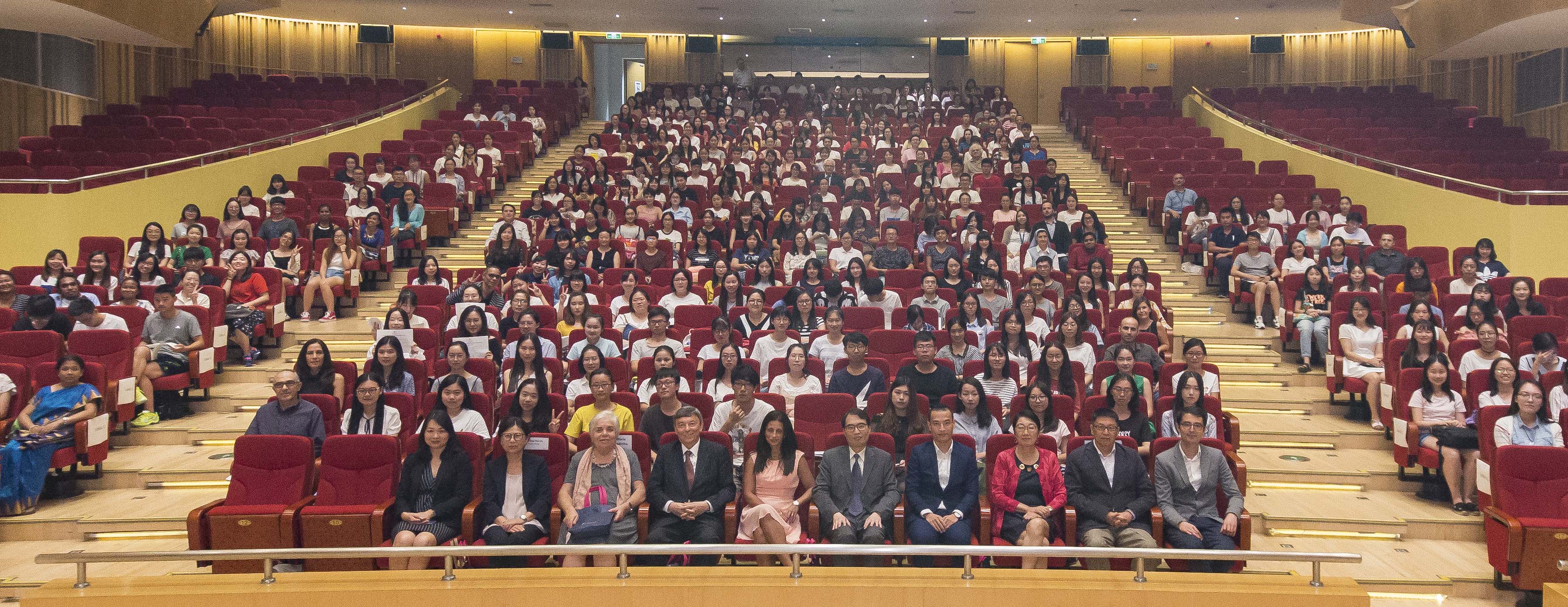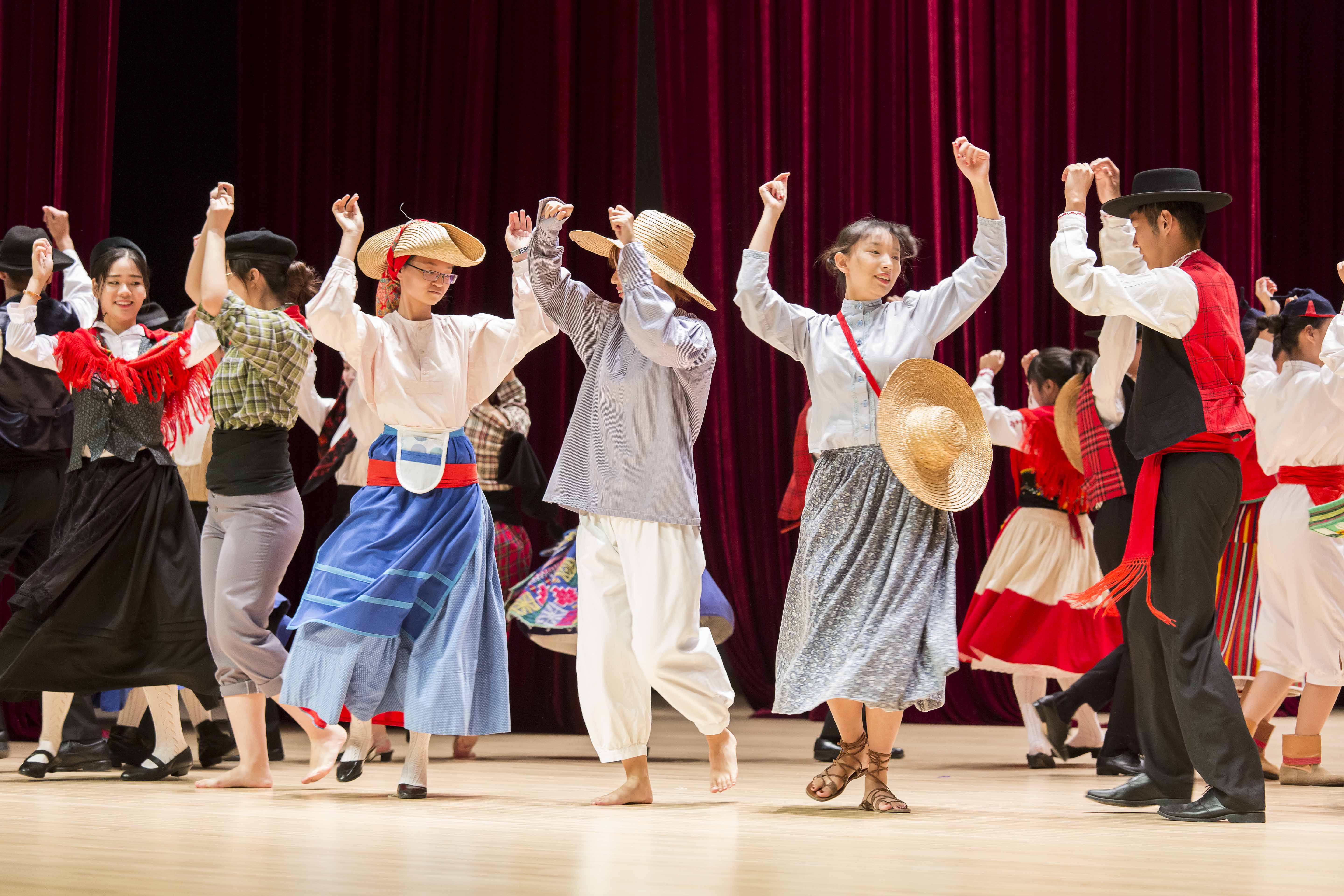The closing ceremony for the 31st Portuguese Language Summer Course, organised by the University of Macau (UM) Department of Portuguese, was held today (4 August). During the three-week intensive course, over 450 students from ten countries and regions learned Portuguese in real-life situations under the guidance of 23 Portuguese language instructors. Participating students say the course was very practical, which not only improved their spoken Portuguese, but also deepened their understanding of the cultures of different Portuguese-speaking countries.
This year’s course attracted a record number of students from East Timor, Thailand, the United States, South Korea, the Republic of Moldova India, mainland China, Hong Kong, and Macao. According to course coordinator Ana Nunes, this year’s course covered several levels (beginners, basic, intermediate, and advanced) and continued to focus on increasing participants’ understanding of the history of Macao and the cultures of Portuguese-speaking countries. There were also lessons at the superior level and a class in Chinese-Portuguese translation. Various extracurricular activities, including visits to local museums and the Historic Centre of Macao, lessons on Portuguese folk dances, and seminars on the cultural heritage of Macao, were organised to help students learn more about the Portuguese language as well as the history and culture of Macao. Nunes says participants in this year’s course were very satisfied with the variety of the activities both inside and outside the classroom, and reported having gained a great deal from them.
At the closing ceremony, participants demonstrated what they had learned from the course in various forms, such as giving speeches in Portuguese, and performing Portuguese folk dances and songs. According to Chung Ka Hou from the basic level class, the best thing about the course was its practicality. ‘The course greatly increased my interest in the Portuguese language,’ says Chung. ‘Not only can I apply what I have learned from the course to everyday life to write invitation letters, ask for directions, and lodge complaints, I even learned the subtle cultural differences between different countries.’ Another student namedTian Xing Ting , who is from Guangdong University of Foreign Studies and attended the translation class, said that she missed the opportunity to hone her skills in translation between Chinese and Portuguese because of an exchange programme in her senior year, so she decided to attend the summer course, which taught her some theoretical knowledge about different kinds of translation, such as literary translation, consecutive and simultaneous interpreting, and news translation, as well as gave her the chance to practice what she learned.
Launched in 1986, the Portuguese Language Summer Course aims to train bilingual language professionals and promote Portuguese language and culture, through well-designed courses tailor-made to suit the proficiency level and characteristics of the students. Over the past 31 years, the course has graduated many bilingual professionals for Macao and other countries and regions in the world. This year’s course received support from Macao Foundation, Macao Post and Telecommunications Bureau, the Education and Youth Affairs Bureau, the Tertiary Education Services Office, the International Institute of Macau, and other institutions.
Source: Faculty of Arts and Humanities


